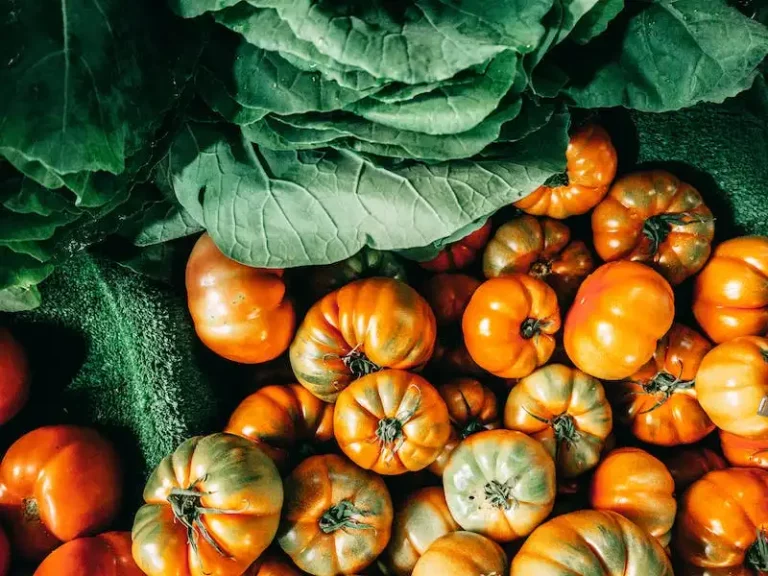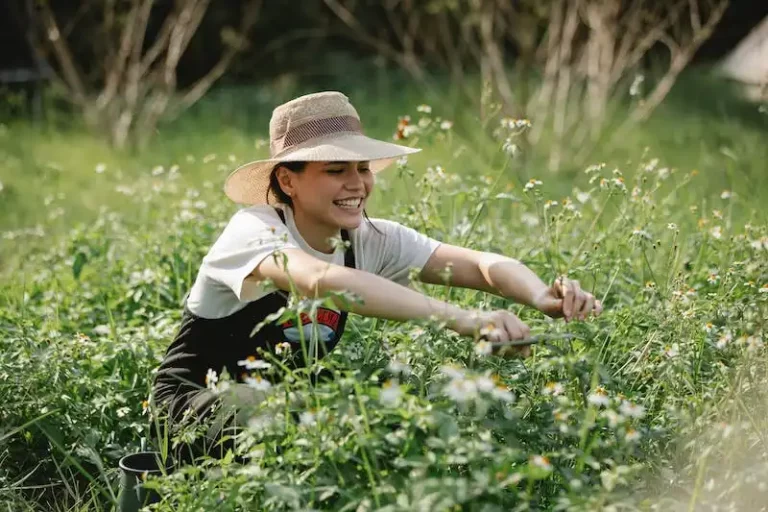Forget-me-nots are charming perennials that are known for their delicate blue blossoms. These plants, scientifically named Myosotis sylvatica, are a popular choice among gardeners for their ability to fill any place with more interest and beauty. They can be grown as annuals or perennials, depending on the gardener’s preference.
For those who want to grow forget-me-nots from seed, here are some tips on how to successfully start growing these lovely plants. First, choose a well-draining potting soil or seed-starting mix. Forget-me-nots prefer moist soil, so make sure to water them frequently. It is also important to note that forget-me-nots are invasive wildflowers, so be cautious when planting them in your garden.
To start growing forget-me-nots from seed, sow the seeds indoors about 2-3 months before the last frost date in a warmer area. Fill a seed tray or container with a peat-free potting soil, then sprinkle the seeds evenly on the surface. Cover the seeds with a thin layer of soil and lightly water. Keep the soil moist and place the tray or container in a warm location with plenty of light.
Once the seedlings have sprouted, you can transplant them to larger pots or baskets. Remember to prune the plants every 2 months to encourage more blooming. If you prefer, you can also directly sow the seeds in your garden in the early spring or fall. Forget-me-nots will flower throughout the growing season, providing you with beautiful blossoms to enjoy.
With their charming name and beautiful blue blossoms, forget-me-nots are a favorite among gardeners. Whether you choose to grow them as annuals or perennials, these plants are sure to bring joy to any garden. So why not give them a try and experience the therapy of growing forget-me-nots from seed?
“Forget-me-nots are the perfect addition to any garden. Their delicate blooms fill the air with a sweet fragrance, and their vibrant blue color is truly captivating. With these tips, anyone can successfully grow forget-me-nots from seed and enjoy their beauty year after year.”
Everything You Need to Know About Forget-Me-Nots
Forget-Me-Nots, or Myosotis, are a beautiful and delicate flowering plant. They are known for their striking blue blooms, and are often seen in gardens or growing wild in woodland areas. If you are interested in growing Forget-Me-Nots, here is everything you need to know.
Types of Forget-Me-Nots
There are several species of Forget-Me-Nots, but the most common is Myosotis sylvatica. These plants are native to Europe and prefer cooler temperatures. They are commonly grown as annuals, although some varieties can be perennial in warmer zones.
Planting Forget-Me-Nots
Forget-Me-Nots can be grown from seed or transplanted seedlings. If you are starting from seed, sow the seeds indoors in pots about a month before the last frost date. The seeds are very small, so only lightly cover them with soil or use a seed starting mix. Once the seedlings have grown a few sets of leaves, they can be transplanted into larger pots or into the garden.
Preferred Conditions
Forget-Me-Nots prefer cooler conditions and partial shade. They are moisture-friendly plants, so it’s important to keep the soil evenly moist. If the weather is warm and dry, make sure to provide adequate watering. They can be grown in full sun, but they may require more watering in these conditions.
Harvesting Seeds
If you allow your Forget-Me-Nots to go to seed, they will self-sow and come back year after year. The seeds are tiny and black, and can be harvested once the flowers have faded. Once harvested, you can scatter the seeds directly in the garden or save them for later sowing in pots or baskets.
Remember that Forget-Me-Nots can be invasive, so it’s best to plant them in areas where they can spread without causing problems in other parts of the garden. They can be planted between other plants or at the edge of a garden bed.
Forget-Me-Nots are a wonderful addition to any garden and can bring interest and color with their delicate blue blooms. Whether you choose to grow them indoors from seed or plant them outdoors, they are sure to be a lovely addition to your horticulture collection.
Plant forget-me-nots in partial shade
Forget-me-nots (scientific name: Myosotis) are a popular variety of flowering plants. One of the most common species is Myosotis sylvatica, known for its charming blue flowers. These plants are easy to grow from seed, and are a great addition to any garden or outdoor space.
When planting forget-me-nots, it’s important to choose a location with partial shade. These plants prefer a little bit of sunlight, but too much direct sunlight can cause them to wither and die. Find an area in your garden or outdoor space where the plants will receive light for only part of the day.
If you don’t have a garden or outdoor space, you can still enjoy forget-me-nots by planting them in pots indoors. Fill the pots with a good quality potting soil, and sow the seeds lightly into the soil. Water the seeds regularly, but be careful not to overwater them.
Forget-me-nots are perennials, which means they will come back year after year. The plants will typically bloom in the spring or summer, depending on when you sow the seeds. With regular care and watering, you can enjoy these lovely flowers for many months.
Planting Tips
Here are five planting tips to help you grow forget-me-nots from seed:
- Choose a location with partial shade – forget-me-nots prefer some sunlight but not too much.
- Plant the seeds in shallow pots or directly in the garden soil.
- Water the seeds regularly, keeping the soil moist but not soaked.
- Be careful not to scatter the seeds too thinly or too heavily – aim for an even distribution.
- Once the seedlings have sprouted, thin them out if necessary to give each plant enough space to grow.
It’s also worth noting that forget-me-nots can be slightly invasive, so it’s a good idea to know what you’re getting into if you decide to plant them in your garden. Some varieties are also toxic to humans and animals, so make sure to handle them with care and keep them out of reach of children and pets.
In conclusion, forget-me-nots are beautiful and whimsical flowering plants that can be easily grown from seed. Whether you plant them in pots indoors or in your garden outdoors, they will add a touch of color and charm to your space. Try planting them in partial shade and follow the planting tips outlined above for best results.
Use potting soil when planting
When planting forget-me-nots from seed, it’s important to use a good quality potting soil. Potting soil provides a loose and well-draining medium for the seeds to grow in. This allows for better root development and helps prevent waterlogging, which can be detrimental to the seedlings.
Start by filling a shallow container with potting soil, leaving about half an inch of space at the top. Then, carefully scatter the forget-me-not seeds on top of the soil. Be mindful of the distance between the seeds, as they will need some room to grow.
Once the seeds are planted, lightly press them into the soil with your fingertips. Avoid burying them too deeply, as forget-me-not seeds require light to germinate. Place the container in a sunny location, preferably near a window with partial sunlight.
Forget-me-nots are annuals and can be grown both indoors and outdoors. If you’re planting them indoors, make sure they receive plenty of sunlight, at least 12 hours per day. During the winter months, supplementary grow lights may be necessary to provide enough light for proper growth.
Careful watering is essential when growing forget-me-nots from seed. The soil should be kept evenly moist, but not waterlogged. Overwatering can lead to root rot, which can be fatal to the seedlings. On the other hand, if the soil becomes too dry, the seeds may fail to germinate. It’s a delicate balance that requires regular monitoring.
Once the seedlings emerge and begin to grow, thin them out if necessary to allow for better air circulation and to prevent overcrowding. This can be done by carefully removing the weaker seedlings, leaving only the strongest ones to grow.
Forget-me-nots are generally low-maintenance and will grow well in various conditions. They are hardy in USDA zones 3 to 8, and in warmer zones, they may require some protection from the hot afternoon sun. In cooler zones, forget-me-nots may even self-seed and come back year after year.
As the forget-me-not plants mature and start to bloom, they will benefit from occasional pruning. Deadheading the spent blossoms will encourage more flowering and prolong the blooming period. It’s a simple task that can be done by pinching off the faded flowers.
Forget-me-nots, scientifically known as Myosotis, are a genus of flowering plants that are incredibly popular among gardeners. Their delicate blue blossoms add a touch of whimsical charm to any garden or container. They are also known for attracting friendly pollinators like bees and butterflies, making them a great choice for a pollinator-friendly garden.
In conclusion, using potting soil when planting forget-me-nots from seed is crucial to their success. It provides a well-draining medium, allows for better root development, and helps prevent waterlogging. By following these tips and providing the necessary care, you can enjoy the beautiful blue blossoms of forget-me-nots in your garden or container.
Water forget-me-nots frequently during warmer months
Forget-me-nots are beautiful wildflowers that can be grown from seed in a variety of conditions. Whether you choose to start them indoors or outdoors, in pots or in the ground, they will need plenty of water during the warmer months.
The forget-me-nots’ scientific name is Myosotis, which comes from Greek words meaning “mouse ear,” describing the shape of its leaves. This genus includes many species, but the most commonly seen is Myosotis sylvatica, known for its delicate and whimsical blue flowers.
In colder climates, forget-me-nots are typically grown as annuals, as they may not survive the winter. However, in milder conditions, they may come back as perennials, allowing you to enjoy their beauty year after year.
If you choose to sow forget-me-nots from seed, start by scattering them over your desired planting area. You can also try sowing them in containers, filling them with a well-draining soil mix. Remember to fill the container about halfway, then sprinkle the seeds on top and fill in the rest of the way.
Water the seeds in well and place them in a sunny or lightly shaded spot. Keep the soil consistently moist, watering them frequently, especially during hotter months. This will help the seeds germinate and the plants to grow strong and healthy.
As the forget-me-not plants start to grow, thin them out regularly to allow enough space for each plant. This will prevent overcrowding and competition for resources. Thin them to about 6 inches apart, according to the variety you are growing.
Once the forget-me-nots are established, they are relatively low-maintenance. However, if you are growing them in containers, you may need to water them more often, as the soil can dry out faster. Check the moisture level regularly and water as needed.
Remember, forget-me-nots can be invasive in some regions, so always check with local authorities before planting them. If you want to enjoy the beauty of forget-me-nots without the risk of invasiveness, consider growing them in pots or using them as cut flowers for indoor arrangements. They make a lovely addition to any garden or floral display.
In conclusion, forget-me-nots are charming wildflowers that can bring color and interest to your garden. Whether you grow them as annuals or perennials, indoors or outdoors, they will require regular and frequent watering during the warmer months. Follow these tips and enjoy the therapeutic benefits of gardening with forget-me-nots.



